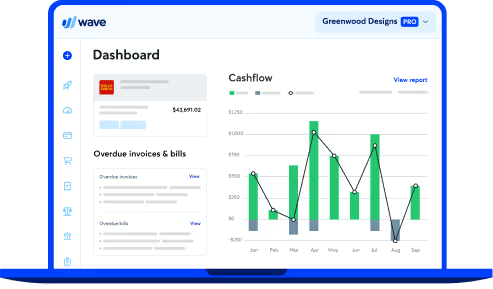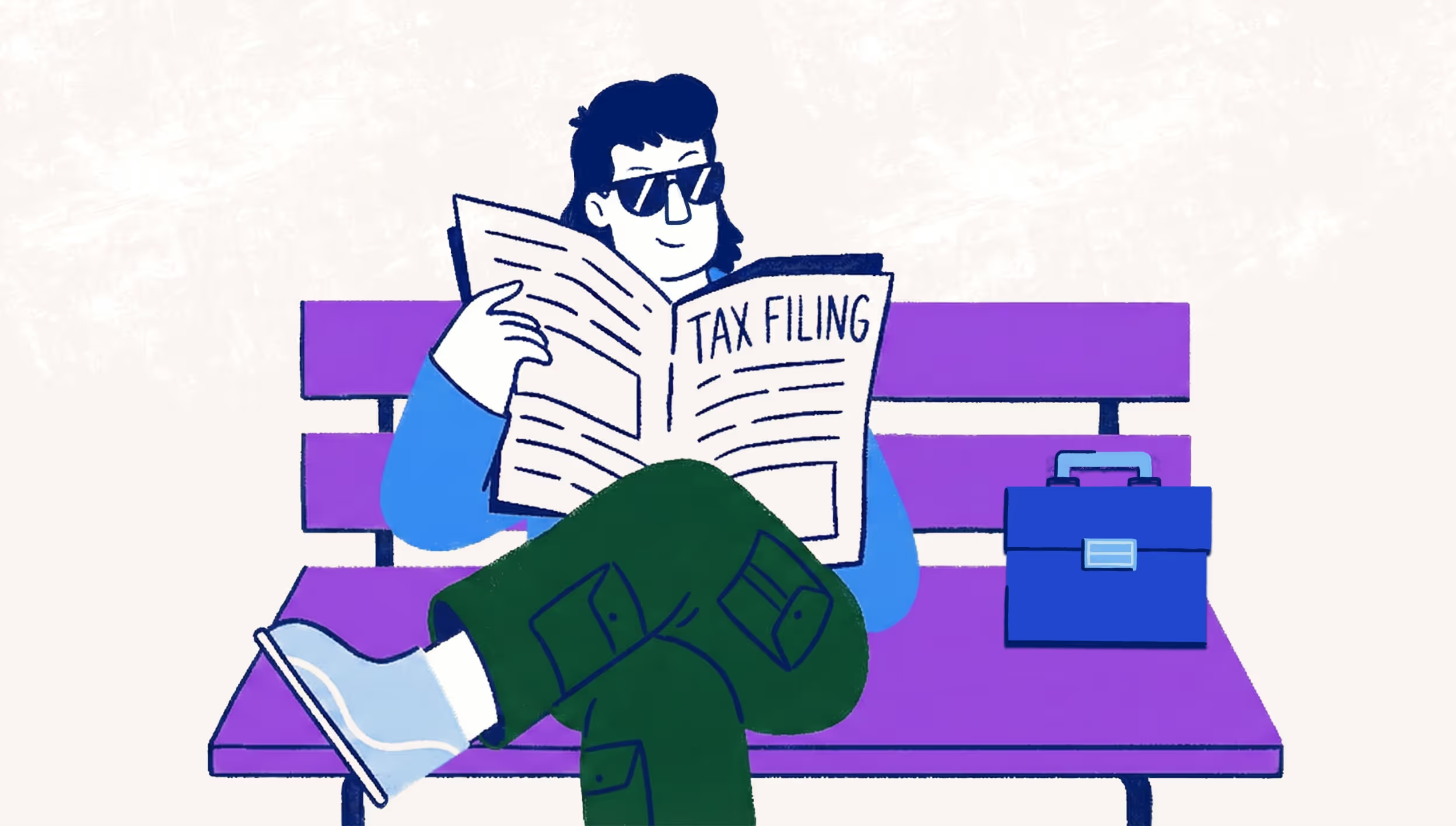
I forgot to pay my payroll tax! Now what?
Phew. You just finished up payroll and now you can head into the weekend. But wait – you forgot to pay taxes on it?! Scrambling, you try to figure out what to do.
Unfortunately, whatever your reason, the IRS and other tax agencies care quite a bit about this - and you could face significant penalties.
But luckily, we’ve got a plan to help you. To take a step back, let’s first return to what you’re typically required to do as an employer in the realm of payroll taxes.
Your responsibilities for payroll taxes
You are required to withhold taxes from your employees’ wages and to pay those taxes to the government. Those could include:
- Federal Withholding (Income tax, Social Security and Medicare Tax.),
- State, and local income taxes
- Federal (FUTA) and state (SUTA) unemployment taxes
- And also, any state-specific taxes that might be relevant.
Once withheld, you must then deposit all required taxes on the right schedule. Typically this is either monthly or semi-weekly. Federal income taxes, as well as FICA taxes are reported quarterly on Form 941.
For federal unemployment taxes (FUTA), you are required to deposited annually unless your liability exceeds $500 at which time liability is due quarterly. Reporting of FUTA is due annually regardless of your deposit frequency, using Form 940.
Typically, you’ll also need to report employees annually using Form W-2, and for any contractors you paid more than $600 in the year using another form, Form 1099-NEC. If You have a responsibility to file these forms as well as provide them to your employees and your contractors, otherwise, you could face IRS penalties.
Reasons that people forget
There's a lot of reasons that you might forget to pay your payroll taxes.
The first is that you may forget to withhold taxes in the first place, and hence don't have the money to then make a deposit to the government. Or, you may withhold them but forget to deposit them on the right schedule - or at all.
The worst circumstances are likely that you have bad cash flow and decide to borrow from your payroll tax funds -- and then don't have enough money to deposit.
But, in another possibility, if you've been actively working to evade taxes, we can't help you there. You should consult an accountant - and a lawyer - right away.
Penalties and Consequences
What’s important to know is that, regardless of the reasons, there are major penalties and you can even be held personally liable for failing to withhold employment taxes from employee wages and therefore not depositing the taxes to the appropriate tax agencies.
On the topic of personal liability, Section 6672 of the Internal Revenue Code allows the agency to charge a responsible party up to 100 percent personal liability.
Some of the financial penalties are quite severe, federal tax deposit penalties include increasing penalties from 2% up to 15% of the total amount owed to the IRS. As well, there are varying penalties for filing late - even if you have already paid the taxes you are reporting.
Another significant penalty is for job misclassification, such as considering workers to be independent contractors instead of employees. If you have paid employees as contractors and therefore didn’t withhold federal income or FICA taxes on the income, the IRS could give you a significant fine, and potentially further penalties. Ensure you are classifying your workers properly.
More penalties are summarized here via Reuters, or in detail in the IRS Employer’s Tax Guide.
There are also other criteria to assess how severe the penalties you might face are, including:
- Company size: large companies (particularly of over $5M in revenue) may pay more
- Delay of payment: longer delays to pay mean higher penalties
- The type of infraction: if you don't file taxes vs. forget an administrative task, you'll face quite different penalties
Consequences and collection
If you fail to pay the debt on your taxes, you could subsequently face what is called a "tax lien", which is a claim against your property. It's almost like taking collateral.
If you want to understand further what it's like to end up in IRS Collection, there's a full document here with the details.
If the action is to willfully evade taxes, you could also face criminal charges, depending on the severity of the case.
Note: If you have issues with trust fund taxes, please see this article here which has some examples.
Now the important part - what should you do?
So now that you're very aware of these payroll tax problems and know what the penalties are, what are your options to fix these issues?
Solve the immediate problem
To fix the issue before you, now, there are two things that you should do right away (thanks to Chron for the tips):
- Appeal for a waiver: If you have received an IRS notice for a late payment or other penalty, you should consider contacting them. But you will need a very good reason. So if you do get in touch, explain why you think you deserve to have the penalty waived. If you're a small business, use that to your advantage, and explain to them that with so much going on, you just forgot or have come on hard times. They might give you a pass.
- PAY! ASAP. Of course, even if you're asking them to waive penalties, you need to pay the money itself. You should send a Form 941 to the address listed on the form or e-file online. And to deposit the taxes, you should use the Electronic Federal Tax Payment System (EFTPS). If you don't already have an account with them, you can create one online here and go to Enroll. To sign up, you'll need to supply information about your business as well as your employer identification number and your bank account details. From there, the IRS will get back to you soon and give you details to login. Once you're logged in, go to Make a Payment. Send off your payment and make sure to write down the confirmation number that you get from the system.
And if you can't get your penalties waived, then you can also pay them using EFTPS, referring to the amounts listed in your IRS bill/notice.
Plan for the future
So, now that you've handled your immediate problem, it's time to ensure this doesn't happen again. A handy payroll tax checklist can help you ensure that you know all the important tax filing deadlines and forms required to keep your business tax information up-to-date. Here's a high-level overview of how to plan for the future.
Withhold taxes and don't take from them
First off, make sure that you withhold the right taxes in the first place - and then don't touch them. Set them aside and consider them sacred, even if cash flow is bad. It's better for your business to go under or have to let someone go - or sell something - than to be in trouble with the government. Let alone, be held personally liable for all this.
Pay on time
Next up, pay on time. Make sure that you deposit on time. In terms of federal withholding, if your business owed less than $50,000 in taxes for the lookback period, then you only need to deposit monthly, on the 15th day of the month following the pay day the liability occurred. If you reported more than $50,000 in tax liability, then you must deposit semi-weekly. Depending on your pay day, you'll know when to deposit. If your pay day is between a Wednesday-Friday, then you need to pay your taxes by the following Wednesday. Or if it's on the weekend or a Monday or a Tuesday, then make sure you pay the money by Friday. Additionally, regardless of whether or not you are a regular monthly depositor or semi-weekly, if you accumulate $100,000 of taxes or more on any day during a deposit period, you must deposit your taxes the next day.
Make it easier - use software
The bottom line is that… you're running a business. And it's hard work. Do you really want to be spending your time with all this administration and busy work, worrying about dates and when and what to file? Not really.
So it's in your interest to look at software that could help you speed up and even automatically do a lot of this for you. There are even great payroll software options like Wave which are definitely worth a try. Who knows - they might really save you down the line.
That being said, hopefully this article didn't scare you about the penalties. The truth is this kind of thing happens to many small business owners, and we put this together to help you out of a potentially stressful but all too common situation. So don't feel bad. Just deal with it. But then make plans to have a future where you don't have to stress about payroll.
If you can take care of payroll faster, and reliably, you can stay focussed on your business.
(and create unique links with checkouts)
*While subscribed to Wave’s Pro Plan, get 2.9% + $0 (Visa, Mastercard, Discover) and 3.4% + $0 (Amex) per transaction for the first 10 transactions of each month of your subscription, then 2.9% + $0.60 (Visa, Mastercard, Discover) and 3.4% + $0.60 (Amex) per transaction. Discover processing is only available to US customers. See full terms and conditions for the US and Canada. See Wave’s Terms of Service for more information.
The information and tips shared on this blog are meant to be used as learning and personal development tools as you launch, run and grow your business. While a good place to start, these articles should not take the place of personalized advice from professionals. As our lawyers would say: “All content on Wave’s blog is intended for informational purposes only. It should not be considered legal or financial advice.” Additionally, Wave is the legal copyright holder of all materials on the blog, and others cannot re-use or publish it without our written consent.


























